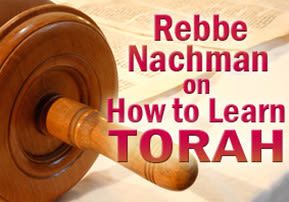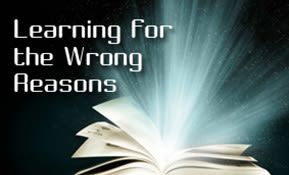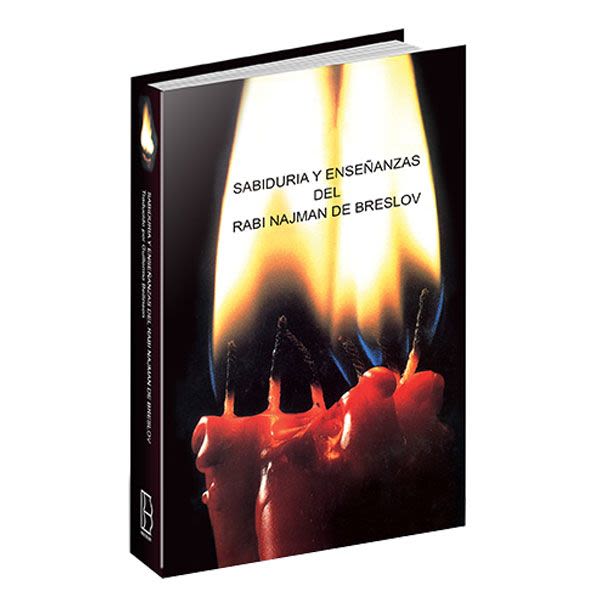
Rebbe Nachman: How to Learn
Rebbe Natan’s classic Discourse 76 from “Sichot HaRan”, where Rebbe Nachman teaches the efficient way of learning Torah.

I heard that Rabbi Nachman once mentioned that he had learned all four sections of the Shulchan Aruch three times. The first time he learned it simply. The second time, he learned it in depth. He knew the source of each law in the Talmud, Rashi and Tosafot. The third time, he understood the mystic reason behind every law.
He accomplished this while a youngster, for he afterwards reviewed the Shulchan Aruch a number of times more.
Rabbi Nachman learned an extraordinary amount throughout his life, even until the end when he suffered from tuberculosis. He was beset with community responsibilities, working intensively with his disciples to bring us close to God and to show us how to serve God. In addition, his mind was always soaring among high and awesome realizations.
Nevertheless, every day he learned a great deal of Torah simply. He was never pressured, but always calm. He was quite extraordinary in this, in a way that is impossible to describe. That is why he had time to do everything.
He always learned exceptionally quickly. He would learn a few pages of Shulchan Aruch in one hour, together with all the commentaries on the page of the large edition: the Turei Zahav, the Magen Avraham, the B’er Hagolah, the Pri Chadash, the Ateret Zekeinim, and so on.
He said that when everyone else is getting ready to go to prayers in the morning, he learns four pages of Shulchan Aruch.
He learned everything—Talmud, Shulchan Aruch and so on—very quickly.
He spoke to us at length about this, saying that it is good to learn quickly without being pedantic. One should learn simply and fast. One shouldn’t confuse oneself by comparing what one is learning in one place with what one recalls from another place. One should simply see that one understands the topic that one is presently learning.
At times, a person may not understand something. But he shouldn’t spend too much time worrying about it. He should let it go and continue learning further. Usually, as a result of his steady learning, he will later come to understand what was puzzling him.
Rabbi Nachman said that in learning, one needs to do no more than simply say the words.
Then, in the process itself, one will come to understand.
One shouldn’t confuse oneself when one first starts learning by trying to understand immediately. With such an attitude, a person will immediately run into problems, and he won’t understand anything. Instead, he should put himself in the mind-set of learning. He should say the words quickly. Then he will eventually come to understand. If he doesn’t understand now, he will understand later.
If there remain a number of matters that he still doesn’t understand, what of it? He will have more than made up for that imperfection with the vast amount of learning that he has accomplished, for that is of supreme value. As our sages said, “A person should first learn and only then seek to understand, even if he doesn’t know what he is saying” (Shabbat 63a).
As a result of his speed, he will learn a great deal and he will come to review the texts several times. As a result, he will understand the second or third time whatever he didn’t grasp at first.
Rabbi Nachman spoke of this a great deal. It is impossible to clarify these matters fully in writing.
This is a truly wonderful approach to learning. Using this technique, one can learn an extraordinary amount, reading a vast amount of material and ultimately coming to understand them much better than if one had learned pedantically, for a stress on understanding every detail confuses a person very much. Many people stopped learning Torah entirely because they had been so concerned with details. In the end, they were left with nothing.
But when a person accustoms himself to learn quickly and without being over-precise, he will acquire the Torah. He will be able to learn a great deal: Talmud, halachah, Tanach, Midrash, Zohar and other books of Kabbalah, and all the other literature.
Rabbi Nachman said that every year, a person should learn the entire Talmud together with the commentaries of the Rif and the Rosh; the four sections of the Shulchan Aruch with its commentaries; all the collections of midrash; the Zohar, the Tikkunei Zohar and the Zohar Chadash; and all the Kabbalistic teachings of the Ari. In addition, a part of one’s daily learning should be given over to learning with some degree of in-depth study.
Then he added a number of other things: a person should say Psalms every day, as well a very great amount of prayers.
In the course of this talk, Rabbi Nachman began to discuss the idea that a person should learn very quickly without worrying about learning in-depth and comparing texts.
These techniques have been tested and found to work.
[As Aryeh Kaplan has pointed out (Rabbi Nachman’s Wisdom), Rabbi Nachman’s schedule here is immense: 30,000 pages of material per year. It would be a full-time task for most people just to rush through and say the words, much less to have the most basic idea of what one is saying.
Nevertheless, there are many Torah leaders who have demonstrated remarkable abilities to learn Torah extraordinarily quickly and with great comprehension. For instance, Rabbi Kook learned fifty to sixty folios of Talmud per hour. Rabbi Nachman is giving a person a vote of confidence and expanding his horizons. This is similar to the breaking of the four minute mile. Originally, such a feat was considered impossible. But as soon as it was broken, many other runners followed suit. Their own mental constraints had been expanded, and they now allowed themselves to accomplish what they had previously told themselves could not be done. – YDS]
Rabbi Nachman added that no one should be upset by his saying that a person should learn so much every day. Even if one doesn’t manage to learn so much, one can still be a truly kosher person.
Previously, Rabbi Nachman had said that one can be a kosher person even if one doesn’t know how to learn at all. One can even be a tzaddik although one is not a scholar.
However, if one is not a scholar who is well-versed in Talmud, with Rashi and Tosafot, one cannot master certain concepts. Still, even if a person is completely simple, he can become a kosher person and a complete tzaddik.
As our sages have said, “You are not required to complete the work, but neither are you free from engaging in it” (Avot 2:16).
[Rabbi Nachman’s teachings can open the floodgates of Torah learning. One may never have felt the internal permission to simply learn without total understanding. Rabbi Nachman gives one conceptual permission to do so, and this may provide an intensely vibrant opportunity. Just saying the words of Torah can also be immensely slaking to a person’s soul. But at some point, a person’s needs may change. Then, if he needs to learn in some other framework or to shift emphasis, he must go along with his organic, natural need. Rabbi Nachman’s statements may be best viewed as not ideal learning techniques presented in a vacuum, but as a balancing response to the imbalanced Torah learning that he saw about him. Rabbi Nachman is a reservoir of opportunity, not a limited pool. And as Rabbi Nachman himself said, one should learn Torah from all masters. – Yaacov Dovid Shulman]
Rabbi Nachman did not say that a person should review his learning immediately. Rather, he should learn an entire book through from beginning to end quickly, and then learn it again in its entirety. (Sichot Haran 76).
***
From “Chambers of the Palace”, an anthology of Rebbe Nachman’s writings abridged and translated by Yaacov Dovid Shulman. Writer, translator, and editor Yaacov Dovid Shulman can be contacted at: yacovdavid@gmail.com.











Tell us what you think!
Thank you for your comment!
It will be published after approval by the Editor.